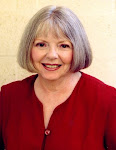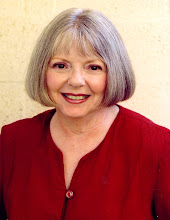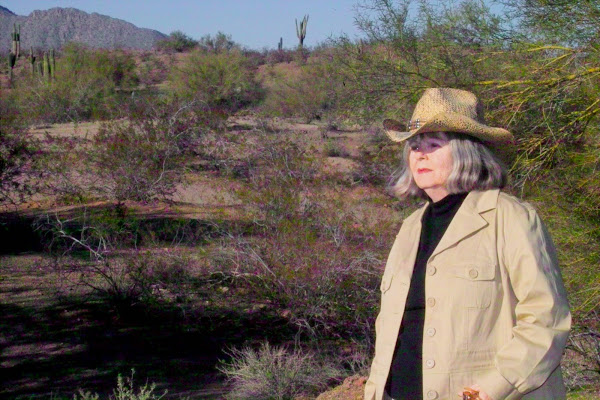As a mystery writer, I firmly believe that each one of us is capable of murder. I know I am. If someone ever tried to hurt my husband, my children, or my grandchildren, I’d cheerfully blow their heads off with a shotgun. Maybe it would be wrong, but I’d do it anyway. You see, I’m in touch with my “Shadow Self” and know how nasty I’m capable of being.
The Shadow Self is the darkest part of our nature, and it encompasses what are called the Seven Deadly Sins: wrath, greed, sloth, pride, lust, envy, and gluttony. How many of these do I have? To one extent or another, all of them. As a writer, that’s a good thing. Writers who aren’t in touch with the negative side of themselves are incapable of writing believable characters, because you can’t believably describe something you’re not intimately familiar with. Imagination can take you only so far; after that, you must rely upon your own experience of the human condition, which means yourself.
In my latest mystery, DESERT WIND I used elements of my own shadow self for each of its characters, both female and male. P.I. Lena Jones is enriched by my rage over social injustice. Journalist Olivia illustrates my own journalistic desire to get to the truth, no matter the cost to myself or others. My unease with strong emotion is seen in cold-hearted Nancy, who refuses to grieve over her murdered husband. My frequent inability to let go of the past gives texture to the character of Gabe, the aging wrangler who substitutes conversations with the ghost of John Wayne instead of forging new relationships.
As a writer, I can’t afford to ignore my Shadow Self. Neither can you.
Besides being a mystery novelist, I’m also a book reviewer for Mystery Scene Magazine, and before that I was the book critic for a nationwide newspaper syndicate. At the newspaper (I retired seven years ago), I received up to 100 books per week. Years and years of reading my way through bushel baskets of lousy to wonderful books taught me how to separate a fully-formed writer’s sensibility from the wannabe. The best writers – whether novelists, self-helpers, or memoirists – were always deeply in touch with their Shadow Selves. The mere wannabes were afraid to go there, so they didn’t. As a result, their books came across as shallow and weak.
Humans are fallible animals. We know we should love our brothers as we love ourselves, but we don’t. We know we should honor our parents, but we frequently don’t. We know we should always behave ethically, but we don’t. Instead, we are walking, talking, ill-behaving creatures who fumble our way through life, leaving wreckage and hurt feelings in our wake.
Fortunately, that’s just on our bad days. We usually behave pretty darn well.
What does all this philosophical soul-searching have to do with writing? Think back on the books that made a lasting impact in your life. The mystery novels. The romances. The literary novels. The memoirs. The histories. The spiritual books. The political tomes. How many of them failed to address the Shadow Self? I venture to say that every single book of consequence addressed the Shadow Self. The writers knew that nothing was more phony and off-putting to serious readers than rah-rah books about flawless people who behave with flawless virtue every flawless day of their long, flawless lives. Heck, even Mother Teresa had a temper. And as for Jesus? Remember the money-tossing, table-wrecking snit fit he threw in the Temple? Oy veh.
Serious readers want to read about characters who remind them of themselves, warts and all. Yes, we do want our heroes and heroines to be stalwart and brave, but not so much that we can’t relate to them. We want to see our characters struggle and win against their inner demons, just like we do. The best writers among us look deeply inside and pick from their own Shadow Selves the particular sins that meets their characters’ needs in order to develop them fully. In other words, the very best writers have the courage to allow their book’s characters to mirror themselves at their very worst.
Uncomfortable, yes, but so is life. One good thing (among many good things) about getting in touch with our Shadow Selves is that in doing so, we not only make our writing better, but we are given the chance to become better human beings. When we identify and name our Shadow Selves, we can finally begin to do battle against them.
After all, you can’t fight something until you admit it’s there.
Sunday, June 3, 2012
Subscribe to:
Post Comments (Atom)










8 comments:
Great insight, Betty. I too, read a lot of books in my line of work and it's becoming more and more rare to see mysteries with characters that are well developed enough to make me care. So often they seem scripted - you get the feeling they show up on cue, say the appointed words, do the appointed deeds, then disappear to wait off stage for the next cue.
I appreciate your work, and that of others who go that extra mile and give us realistic characters with all the flaws and quirks that make us human. Keep it up, and thanks!
PJ
Thanks, PJ!
Excellent, Betty!
Oh, Betty Nevermind about your handout. Ha. THIS is just what I needed!
Oh, Betty Nevermind about your handout. Ha. THIS is just what I needed!
Thanks for all the kind comments, folks!
Thank you for such a great workshop with loads of information. I also thank you for this blog that inspires me to go back and add that additional flaw to my main character that I took out because someone said that she did not like it. Tough cookies! My character is a bulimic with relationship problems, and man oh man, is she a flawed human being! Guess who she takes after.
Sometimes it's only within the pages of our books that we can admit--in a roundabout manner--our own shortcomings. Glad you brought this up, Betty.
Post a Comment